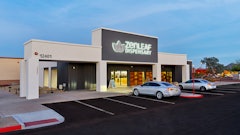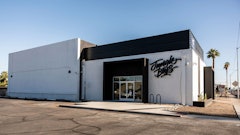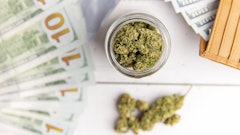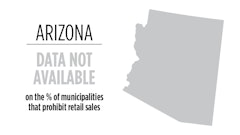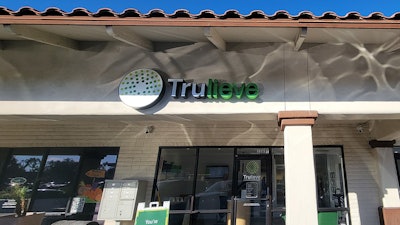
Trulieve is calling it harassment, but complaints by neighboring businesses about odors they say are coming from the cannabis company’s Phoenix cultivation facility are not going away.
A Florida-based operator, Trulieve became a market leader in Arizona following its $2-billion acquisition of Harvest Health in 2021. The company now has 21 dispensaries and five cultivation facilities in Arizona.
The complaints in Phoenix first began in early 2023, when six companies operating near Trulieve’s cultivation facility on East Magnolia Street said the smell of cannabis was causing a nuisance to their businesses, Arizona’s Family, a CBS affiliate, first reported. The facility is in an industrial area off Interstate 10 near the Sky Harbor Airport.
Betsy Cable, a Phoenix code compliance manager, described the smell as “overpowering” during a zoning hearing in July, when the city provided Trulieve six months to mitigate the odor. Cable also said that Trulieve had done a “pretty good job” containing the cannabis smell when a rolling door to the building remained closed.
According to Phoenix’s zoning ordinance, odors emitted beyond a business’s parcel that “exceeds the general or ambient level” are in violation of the city’s land-use matrix for environmental quality. In addition, Phoenix City Code considers anything “offensive to the senses” as a misdemeanor nuisance.
Trulieve maintains its compliance.
“Trulieve is pleased that the city of Phoenix has found our facility to be in compliance with the marijuana ordinance, as it has been since operations at this facility began in 2013,” Lauren Niehaus, executive director of Government Relations for Trulieve, told Cannabis Business Times.
“We look forward to continuing our partnership with the city of Phoenix and our neighboring businesses in the area,” Niehaus said.
Representing some of the neighboring businesses, attorney Corey Foley told city officials six months ago his clients were attempting to bring light to a “significant odor issue” that has largely gone unaddressed.
“This isn’t a matter of revocation at this point,” Foley said during the July hearing. “This is a matter of asking this large multibillion-dollar company to meet the same legal standards that all the small businesses in Phoenix have to meet when they obtain use permits.”
Now, six months later, the city’s zoning office is providing Trulieve an additional four months to mitigate the smell of cannabis that neighbors say has continued to drift onto adjacent properties.
But Trulieve, which, according to city inspectors, has made improvements by adding air scrubbers, carbon filters and roofing amendments, now views the ongoing complaints as a matter of “harassment,” company attorney Larry Lazarus said during a follow-up hearing this week. Lazarus said the company took a corrective action plan since the previous hearing.
Foley said the ongoing complaints by his clients are not a harassment matter.
“This is a longstanding odor issue,” he said. “We’re just simply seeking to come back in 60 days to find out if these most recent improvements have finally solved the odor issue.”
A city inspector involved with the case said this week that he smelled the cannabis odor on seven of 12 visits to Trulieve’s facility since July, Arizona’s Family reported.
Trulieve’s attorney said the company has been most concerned about the possibility of the cannabis smell traveling off its premises rather than what’s being smelled on-site.
“We want to be able to resolve this problem, and the problem has been significantly resolved, but we are concerned that we address this so that outside and neighbors away from the property, not on the property, are not smelling this,” Lazarus said in July.
He also called the odor complaints subjective since there’s no unit to measure the intensity of a smell, comparing it to noise being measured in decibels.
















